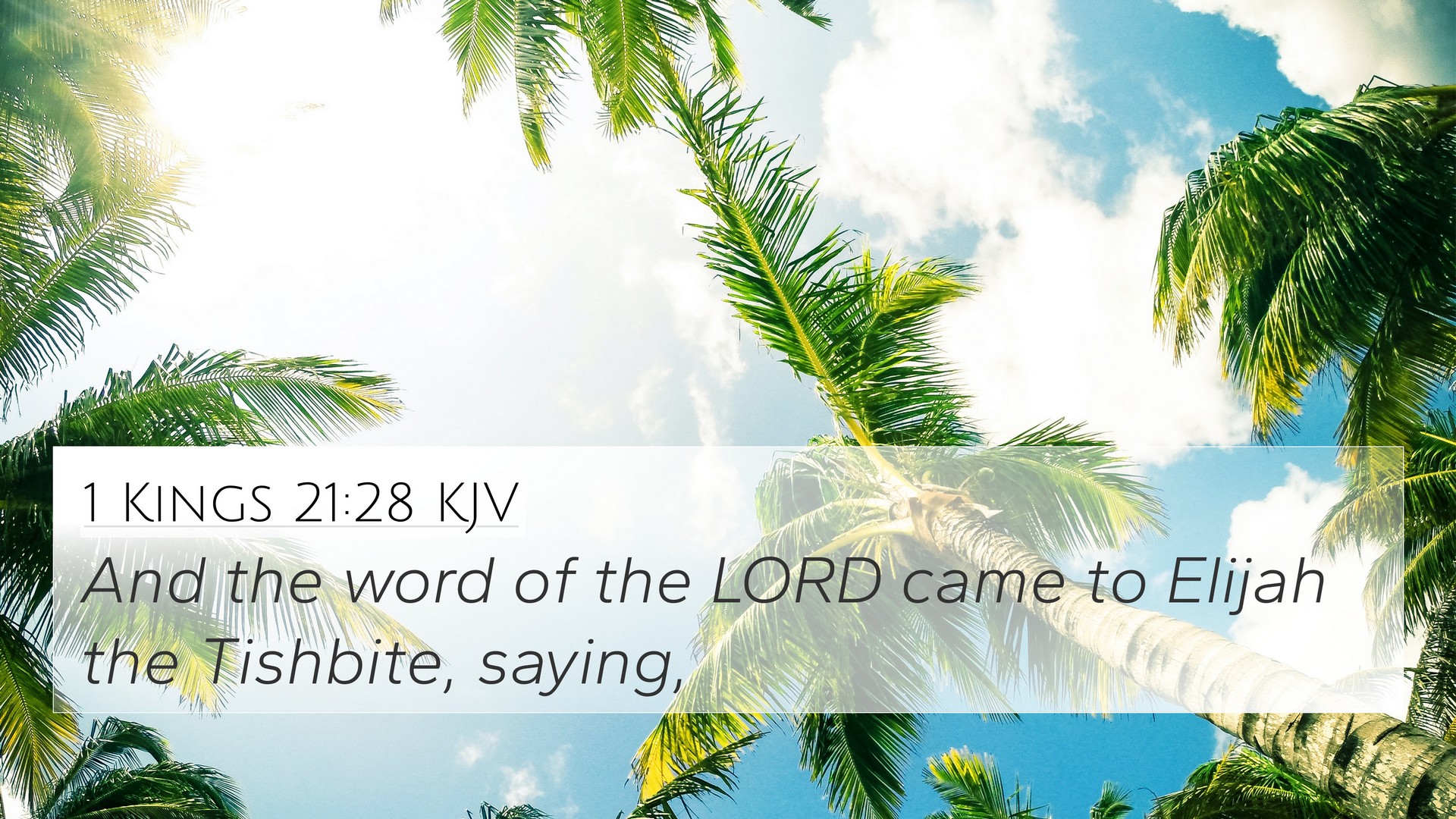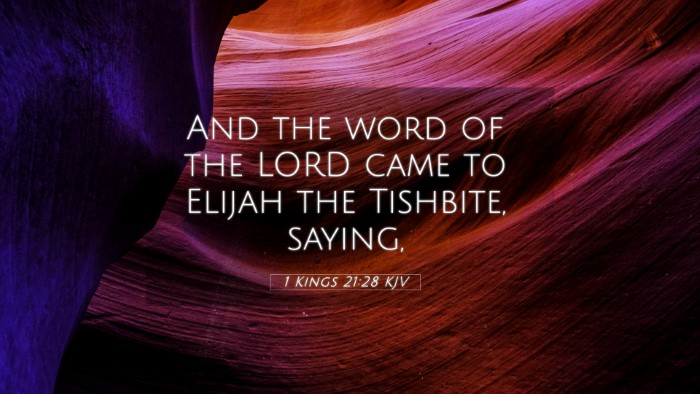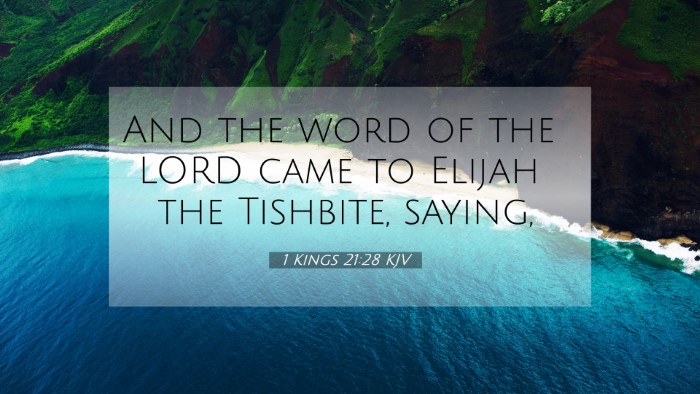Understanding 1 Kings 21:28
Verse Context: 1 Kings 21:28 states, "And the word of the LORD came to Elijah the Tishbite, saying, 'Seest thou how Ahab humbleth himself before me? because he humbleth himself before me, I will not bring the evil in his days: but in his son's days will I bring the evil upon his house.'" This verse is a pivotal moment that bridges the narrative of King Ahab's reign and his relationship with God.
Summary of Interpretations
This verse highlights the themes of repentance, divine mercy, and the consequences of sin. Elijah receives a revelation from God that acknowledges Ahab's humility, yet it also sets the stage for future judgment, indicating that Ahab's repentance may delay God's judgment but not erase the consequences of generational sin.
Key Insights from Public Domain Commentaries
Below are insights drawn from the works of Matthew Henry, Albert Barnes, and Adam Clarke:
-
Matthew Henry:
Henry emphasizes Ahab's humility as a significant turning point; he notes that true humility can lead to God's mercy. He also points out that Ahab's actions, even when commendable, do not exempt him from the impending judgment, showcasing the seriousness of sin and its repercussions over generations.
-
Albert Barnes:
Barnes focuses on the nature of God's mercy and justice. He observes that despite Ahab’s humble request for mercy, the inevitable judgment lingers as a reminder that while God is forgiving, the consequences of sin are often severe and can affect future generations.
-
Adam Clarke:
Clarke expounds on God's communication with Elijah, regarding it as a profound moment that reveals God's awareness of human hearts. He notes the theological implications of repentance and how it influences divine action, asserting that Ahab's humility softens God's heart, but future judgment remains necessary for justice's sake.
Thematic Connections and Cross-References
This verse connects to several important themes and related Bible verses that further illuminate its meaning:
- 2 Chronicles 33:12-13: This passage recounts King Manasseh’s repentance, emphasizing the transformative power of humility before God.
- James 4:10: "Humble yourselves before the Lord, and he will lift you up." This verse underscores the importance of humility in receiving God's grace.
- Romans 2:4: Highlights God's kindness and patience as a catalyst for repentance, reinforcing that Ahab's humility elicited a divine response.
- Ezekiel 18:30: Calls for Israel to repent from sin, echoing Ahab's situation where an act of humility leads to a delay in judgment.
- Matthew 23:12: "For those who exalt themselves will be humbled, and those who humble themselves will be exalted." This principle reflects Ahab’s situation by providing a broader biblical context of humility.
- Exodus 34:7: This verse emphasizes that God does not leave the guilty unpunished, highlighting the reality that while there may be mercy, justice must still be served.
- Galatians 6:7: Serves as a reminder that whatever one sows, that will he also reap, thus Ahab's generational consequences are in play.
- Hebrews 10:31: "It is a fearful thing to fall into the hands of the living God," drawing attention to the outcome of unrepentant sin even amidst moments of humility.
- Isaiah 57:15: Assures us that God dwells with the humble and contrite—perfect for reflecting Ahab’s acknowledgment of his wrongs and seeking forgiveness.
- Revelation 3:19: Illustrates God's call to repentance and His love for correction, aligning with the time of grace offered to Ahab through his humbled state.
Lessons and Practical Applications
1 Kings 21:28 teaches us several vital lessons relevant to modern-day believers:
- God Values Humility: The passage emphasizes that God takes notice of humility, prompting believers to approach Him with a humble heart.
- Consequences of Sin: Even in repentance, we must understand that sins may have lasting impacts; thus, it is critical to live righteously to avoid generational repercussions.
- The Importance of Intercession: Elijah’s role highlights the power of prayer and intercession for others, underscoring a believer's responsibility to pray for those striving for redemption.
- Grace and Judgment Coexist: The balance of grace and impending judgment reminds us of God’s justice, encouraging us to maintain a lifestyle of repentance and faith.
Conclusion
In examining 1 Kings 21:28 through the lenses of respected biblical scholars, we find a depth of meaning that transcends the specific historical context of Ahab. The principles of humility, repentance, and the weight of generational sins resonate throughout scripture, offering a timeless message of hope, introspection, and the call to holiness. This verse serves as a reminder of the complexity of God's relationship with His people, marked by both grace and accountability.


